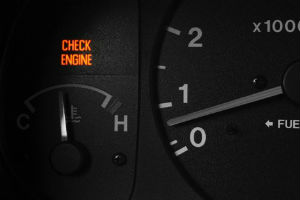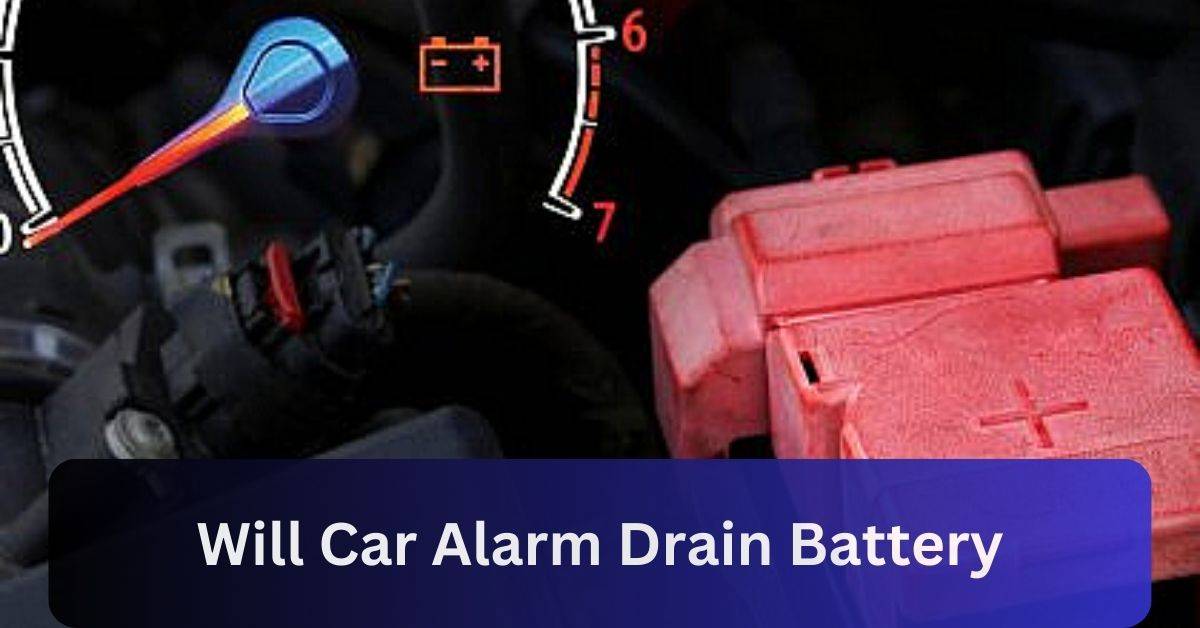Yes, a bad battery causes an O2 sensor code by creating voltage alternation that disrupts the sensor’s performance. If your car’s battery is weak or failing, it can lead to incorrect O2 sensor readings and trigger a fault code.
In this article, we look at whether a bad battery can cause O2 sensor codes. We’ll explore how your car’s battery health might affect O2 sensor errors and explain the connection between them.
What are O2 Sensor Codes?
O2 sensor codes are error messages from your car’s computer that signal a problem with the oxygen sensor.

This sensor measures the amount of oxygen in the exhaust gases to help manage fuel use. When it fails or gives incorrect readings, the car’s computer generates a code to alert you of the issue.
What is the Impact of O2 Sensor Codes on Vehicle Performance?
The codes can hurt your car’s performance by making it use more fuel and produce more pollution. When the oxygen sensor isn’t working right, your car may run less smoothly, have less power, and use more fuel.
It can also lead to more pollution, making your car less eco-friendly and possibly causing damage to the engine over time.
Read Also: What Does RKE Battery Mean – Remote The Security Key!
Can a Bad Battery Cause O2 Sensor Codes?
Yes, a bad battery can trigger O2 sensor codes. When the battery is weak, it may not provide enough power to the car’s computer, causing it to misread signals from the O2 sensor.
This can trigger error codes, making it seem like the O2 sensor is faulty when it’s an issue with the battery.
What is the Correlation between a Bad Battery and O2 Sensor Codes?
Low battery voltage:
The correlation between a bad battery and O2 sensor codes is often due to low battery voltage. When the battery is weak, it can’t supply enough power to the car’s computer. This can cause the computer to misread signals from the O2 sensor, triggering error codes.

Voltage spikes:
A bad battery can cause O2 sensor codes. When the battery is failing, it can produce sudden surges in voltage. These spikes can confuse the car’s computer and make it misread the O2 sensor’s signals.
Battery-related issues:
If the battery is weak or failing, it might not provide consistent power to the car’s computer. This can cause the O2 sensor to give wrong readings, which leads to error codes.
How can I determine if a bad battery is causing O2 sensor codes?
To determine if a bad battery is causing O2 sensor codes, first, check your battery’s voltage. Next, clear the error codes and see if they return. If the codes stayed away after fixing the battery, it was likely the cause.
Read Also: Is 13.6 Battery Voltage Good – Understand Battery’s Voltage!
Will replacing the battery resolve O2 sensor codes?
The problem was caused by a weak or failing battery. A new battery will provide stable power to the car’s computer, helping it read the O2 sensor correctly. However, if the codes persist, there might be another issue with the O2 sensor or the car’s electrical system.

How to address O2 Sensor Codes?
If the codes persist, inspect the O2 sensor and its wiring for damage or wear. Clean or replace the O2 sensor if necessary. Finally, use a diagnostic tool to clear the codes and see if they return.
How to Maintain a Healthy Battery for Optimal Performance?
A healthy battery for optimal performance, regularly check its voltage and clean the terminals to prevent corrosion. Ensure it is securely mounted and avoid draining it completely. Additionally, have your battery tested periodically to catch any issues early and replace it if it shows signs of weakening.
What damages O2 sensors?
Contaminants:
Substances like oil, coolant, or fuel additives can coat the sensor, preventing it from accurately reading exhaust gases. This can cause the sensor to send incorrect signals to the car’s computer, leading to poor engine performance and increased emissions.

Heat and Exhaust Conditions:
High temperatures and harsh exhaust gases can wear out the sensor over time, causing it to fail. This can make the engine run poorly and produce more pollution.
Age and Wear:
Over time, the sensor’s performance can decline due to normal wear and tear. This can result in inaccurate readings and poor engine performance. Usually, you should replace O2 sensors every 60,000 to 100,000 miles.
Physical Damage:
Road debris, improper installation, or accidental impacts can break or crack the sensor. This damage prevents the sensor from accurately measuring exhaust gases, leading to engine problems and higher emissions.
Improper Handling:
Dropping, banging, or touching the sensor’s sensitive parts can cause it to fail. Always handle the sensor carefully and follow proper installation procedures to avoid damaging it.
Poor Fuel Quality:
Fuel with impurities or additives can create deposits on the sensor, affecting its performance. This can lead to incorrect readings and engine issues.
Using high-quality fuel and keeping your vehicle’s fuel system clean can help prevent problems with the O2 sensor and maintain engine efficiency.
Can a bad battery trigger a check engine light?
Yes, a bad battery can trigger a check engine light. If the battery is weak or failing, it might not provide stable power to the car’s computer. This can cause the computer to detect errors or malfunctions, triggering the check engine light.

Can a bad battery throw codes?
Yes, A weak or failing battery can cause the car’s computer to receive unstable power, leading to incorrect readings from various sensors. This can trigger error codes, making it seem like there are issues with the car’s systems.
Frequently Asked Questions:
1. Can a bad car battery trigger an O2 sensor code?
Yes, a bad car battery can trigger an O2 sensor code. A weak battery can cause unstable power, leading to incorrect readings from the O2 sensor and triggering an error code in the car’s computer.
2. How does a bad battery affect the oxygen sensor’s performance?
A bad battery affects the oxygen sensor’s performance by providing unstable power. This can cause the car’s computer to misread the sensor’s signals, leading to incorrect engine adjustments and triggering error codes.
3. Can replacing a bad battery fix an O2 sensor code?
Yes, a bad battery can fix an O2 sensor code. A new battery provides stable power, allowing the car’s computer to read the O2 sensor correctly. If the issue was the battery, the error code should disappear.
4. What should I do if I have an O2 sensor code and suspect a bad battery?
If you have an O2 sensor code and suspect a bad battery, first replace or recharge the battery. If it does, have the O2 sensor checked to ensure it’s not faulty.
Conclusion:
In conclusion, a bad battery can indeed trigger O2 sensor codes by causing unstable power and incorrect readings.
If you suspect a battery issue, replace or recharge it and clear the error codes. If the problem persists, further inspection of the O2 sensor may be needed.





